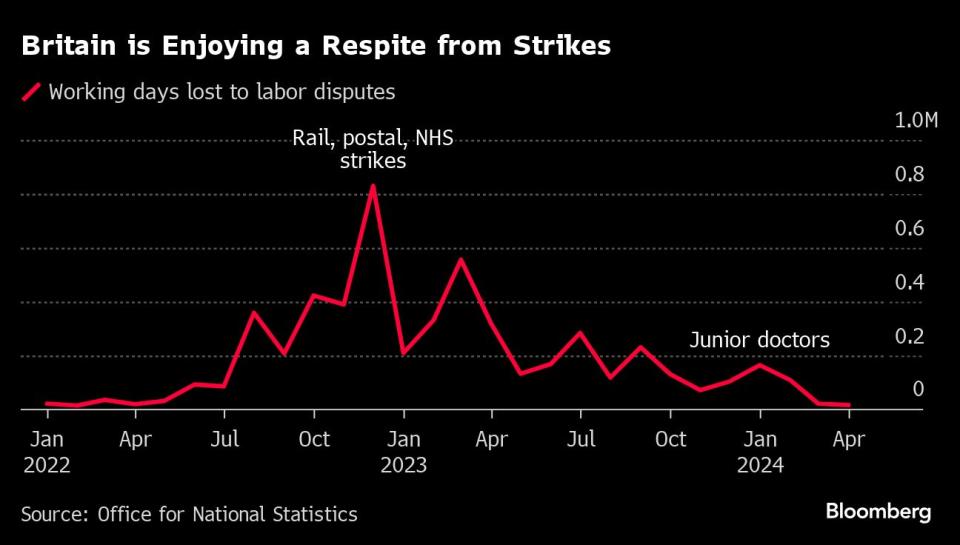UK Strikes Ease to Lowest in Two Years Ahead of Election
(Bloomberg) -- Strikes by British workers fell to the lowest in more than two years ahead of an election on July 4 where the Labour opposition is seeking to gain control from the ruling Conservative Party.
Most Read from Bloomberg
Fed’s Higher-for-Longer Stance Hits Firms That Expected Rate Cut
Stocks Rise as Solid Treasury Sale Spurs CPI Bets: Markets Wrap
The number of days lost to strikes dropped to 17,000 in April, the lowest since February 2022 and down sharply from the levels seen at the peak of industrial strife after inflation hit double digits.
The respite may be short-lived, with junior doctors planning industrial action and unions warning of more walkouts regardless of who wins the election.
Labour — which has traditionally had close links to the trade unions — is about 20 points ahead of the Conservatives in opinion polls. The Trades Union Congress has told Labour leader Keir Starmer that a new government could face more industrial action if it does not address low pay.
Almost 2.7 million working days were lost to walkouts by workers last year as the Conservative government tried to thrash out deals with unions. At the peak of the strife in December 2022, more than 800,000 days were lost in a single month.
While pay deals have been agreed with some unions, junior doctors plan to go on strike just days ahead of the election. Prime Minister Rishi Sunak has blamed industrial action for preventing falls in long waiting lists in the National Health Service with Starmer vowing to resolve lingering pay disputes with the doctors.
Both parties have refused to agree to the demands of the British Medical Association, who are demanding a 35% pay increase for junior doctors after real terms cuts to their pay since 2010. They plan to strike for five days beginning on June 27.
(Updates with detail on strikes)
Most Read from Bloomberg Businessweek
As Banking Moves Online, Branch Design Takes Cues From Starbucks
Food Companies Hope You Won’t Notice Shortages Are Raising Prices
Legacy Airlines Are Thriving With Ultracheap Fares, Crushing Budget Carriers
China’s Economic Powerhouse Is Feeling the Brunt of Its Slowdown
©2024 Bloomberg L.P.




